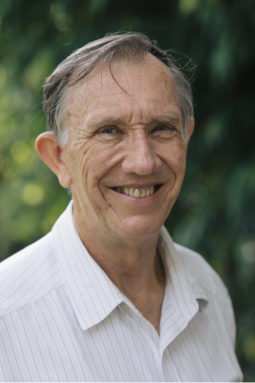Date & Time
September 13, 2019
19:00:00
20:30:00
Location
The University of Melbourne - Prest Theatre Ground Floor, Faculty of Business & Economics 111 Barry Street, Carlton, VIC
Category
Keith Hancock LecturesCreating Pathways to Child Wellbeing in Disadvantaged Communities
Presented by Prof Ross Homel AO FASSA
 Children living in economically deprived areas, especially First Nations children, are more likely than those from more affluent communities to drop out of school, become trapped in inter-generational cycles of poverty and welfare dependence, or get caught up in the child protection or youth justice systems. Despite the explosion in scientific knowledge about human development, the best efforts of governments and caring organisations, and the billions of dollars that have been spent over several generations, the gap is not narrowing. Today, where children live has an even greater impact on their life chances than it did 30 years ago. The recent widespread adoption of collective impact frameworks for place-based initiatives is a promising innovation, but robust methodologies that draw on the rich body of developmental research, and on prevention and implementation science, are still emerging. The challenge now facing Australia is to build developmental and prevention science methods and insights into large scale, sustainable, economically efficient, early prevention delivery systems. This will require the establishment of new types of prevention science infrastructure, including ‘intermediate organisations’ that can foster the methodological innovations and broad-based and respectful collaborations between actors from research institutions, government, communities, and non-government organisations that are essential for achieving measurable, ongoing improvements in wellbeing across the life course. Methods for engaging authentically with and empowering communities and families are fundamental to the success of this enterprise, but remain elusive. This lecture will describe the achievements to date of one long-term collaboration between the worlds of research, policy and practice, the Creating Pathways to Child Wellbeing Project. This collaboration, which entails the development and implementation of new electronic measurement tools and other prevention science resources, supported by the new profession of Collective Change Facilitator, points toward the kinds of prevention infrastructure and intermediate organisations that need to be developed to ‘shift the dial’ for children growing up in challenging environments across Australia.
Children living in economically deprived areas, especially First Nations children, are more likely than those from more affluent communities to drop out of school, become trapped in inter-generational cycles of poverty and welfare dependence, or get caught up in the child protection or youth justice systems. Despite the explosion in scientific knowledge about human development, the best efforts of governments and caring organisations, and the billions of dollars that have been spent over several generations, the gap is not narrowing. Today, where children live has an even greater impact on their life chances than it did 30 years ago. The recent widespread adoption of collective impact frameworks for place-based initiatives is a promising innovation, but robust methodologies that draw on the rich body of developmental research, and on prevention and implementation science, are still emerging. The challenge now facing Australia is to build developmental and prevention science methods and insights into large scale, sustainable, economically efficient, early prevention delivery systems. This will require the establishment of new types of prevention science infrastructure, including ‘intermediate organisations’ that can foster the methodological innovations and broad-based and respectful collaborations between actors from research institutions, government, communities, and non-government organisations that are essential for achieving measurable, ongoing improvements in wellbeing across the life course. Methods for engaging authentically with and empowering communities and families are fundamental to the success of this enterprise, but remain elusive. This lecture will describe the achievements to date of one long-term collaboration between the worlds of research, policy and practice, the Creating Pathways to Child Wellbeing Project. This collaboration, which entails the development and implementation of new electronic measurement tools and other prevention science resources, supported by the new profession of Collective Change Facilitator, points toward the kinds of prevention infrastructure and intermediate organisations that need to be developed to ‘shift the dial’ for children growing up in challenging environments across Australia.



